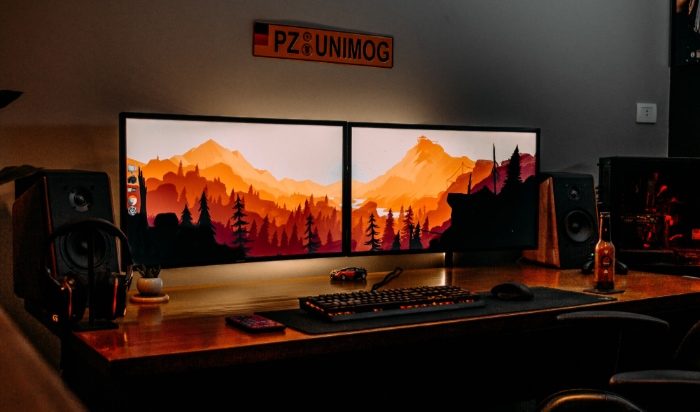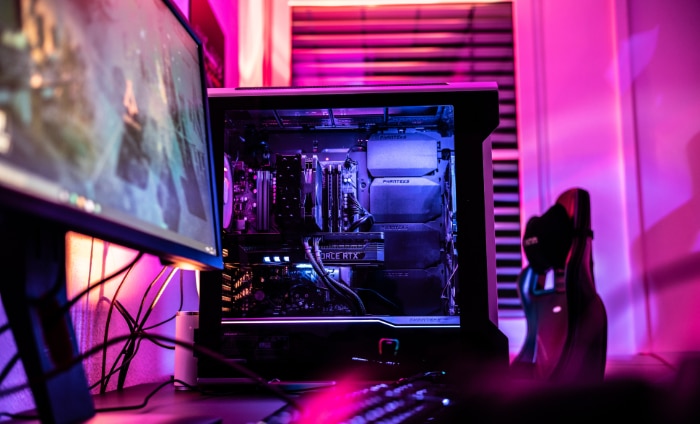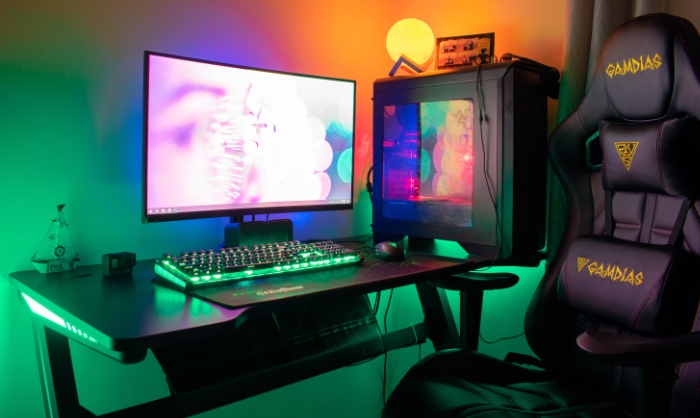How Long Do Gaming PCs Last? A Deep Dive

As gaming continues to grow in popularity, more people are investing in gaming PCs to experience the latest titles in all their high-definition glory. These powerful machines not only provide immersive gameplay experiences but also serve as workstations for various tasks.
However, one question that plagues many potential buyers and current owners alike is how long a gaming PC lasts. The answer to this question depends on several factors, including the quality of components used, maintenance, and usage patterns.
By the end of this guide, you should have a clearer idea of what to expect from your gaming PC and how to get the most out of it throughout its life.
Factors Affecting Gaming PC Lifespan
Understanding the factors that influence the lifespan of a gaming PC is crucial for making informed decisions about purchasing, maintaining, and upgrading your system.
Hardware Components
Each component in a gaming PC plays a specific role and has its own lifespan. Here, we will briefly discuss the main components and their impact on the overall longevity of your system.
Processor: The CPU, or central processing unit, is the brain of your gaming PC. It handles all the data processing and calculations needed for running games and applications. High-quality processors usually last longer and can handle more demanding tasks.
Graphics Card: The GPU, or graphics processing unit, is responsible for rendering images, videos, and animations on your screen. A powerful graphics card is essential for running games at high settings and resolutions. Over time, the performance of graphics cards may degrade, leading to a decrease in gaming performance.
RAM: Random Access Memory (RAM) stores data that your PC needs to access quickly. Having sufficient RAM ensures smooth multitasking and overall system performance. RAM modules typically have a long lifespan but may need to be upgraded as games and applications become more demanding.
Storage: Your gaming PC’s storage devices (HDDs, SSDs) hold all your data, including games, files, and operating system. While storage devices can last for years, their performance and reliability may decline over time.
Motherboard: The motherboard connects all the components of your gaming PC, ensuring they work together seamlessly. A durable, high-quality motherboard is essential for a long-lasting gaming PC.
Power Supply: The power supply unit (PSU) provides power to all the components in your gaming PC. A reliable PSU ensures stable performance and protects your components from power surges and fluctuations.
Quality of Components
Brand Reputation: Choosing components from reputable manufacturers usually results in higher quality and longer-lasting gaming PCs. Research and reviews can help you identify trustworthy brands in the market.
Price and Quality Correlation: Although it’s not always the case, higher-priced components often provide better performance and durability. Investing in higher-quality components can lead to a longer-lasting gaming PC.
Maintenance and Upgrades
Cleaning and Dust Prevention: Regularly cleaning your gaming PC, both inside and out, prevents dust buildup, which can cause overheating and reduce the lifespan of your components.
Updating Drivers and Firmware: Keeping your system up to date with the latest drivers and firmware helps ensure optimal performance and compatibility.
Periodic Hardware Upgrades: Upgrading components, such as your GPU or RAM, can help extend the lifespan of your gaming PC by maintaining performance levels in line with newer games and applications.
Usage Patterns
Intensity and Duration of Gaming Sessions: Longer and more intense gaming sessions can generate more heat and stress on your components, which can negatively affect their longevity.
Types of Games Played: Some games are more demanding than others, putting more strain on your system. Regularly playing resource-intensive games may shorten the lifespan of your gaming PC.
Non-Gaming Tasks: If your gaming PC is also used for tasks like video editing, rendering, or other demanding activities, it can impact the overall lifespan of your system.
Average Lifespan of Gaming PCs

While the lifespan of a gaming PC varies depending on various factors, it is helpful to have a general understanding of the average lifespans of different components.
Typical Ranges for Different Components
Processors: Modern processors are built to last and can usually remain functional for 7 to 10 years. Their performance, however, may become inadequate for running the latest games and applications as technology advances.
Graphics Cards: Graphics cards typically have a lifespan of 3 to 5 years before their performance starts to decline. However, high-quality GPUs may last longer, and some gamers may choose to upgrade more frequently to keep up with the latest gaming trends.
RAM: RAM modules can last for a long time, with many having a lifespan of 10 years or more. However, the capacity of RAM may need to be upgraded to meet the increasing demands of newer games and applications.
Storage: Hard disk drives (HDDs) typically have a lifespan of 3 to 5 years, while solid-state drives (SSDs) can last between 5 to 7 years. However, their longevity depends on usage patterns and the amount of data written to the drives.
Motherboards: High-quality motherboards can last anywhere from 5 to 10 years. Their lifespan is often determined by the lifespan of other components, as they may need to be replaced to accommodate newer hardware.
Power Supplies: A good-quality power supply unit (PSU) can last between 5 to 10 years. A reliable PSU is essential for the stable operation and longevity of your gaming PC.
Examples of Gaming PC Lifespans
Here are a few examples illustrating the varying lifespans of gaming PCs, showcasing the impact of factors such as component quality, maintenance, and upgrades:
- Example A features a high-end gaming PC equipped with top-tier components. The owner diligently performs regular maintenance and has upgraded their GPU twice over the past 7 years. As a result, their gaming PC continues to deliver outstanding performance.
- Example B describes a mid-range gaming PC purchased 5 years ago. Although the owner hasn’t upgraded any components, they have consistently maintained their system. Consequently, their gaming PC can still run most modern games at medium settings.
- Example C highlights an entry-level gaming PC bought 4 years ago. The owner hasn’t carried out any upgrades or regular maintenance on their system. Due to this, their gaming PC struggles to run the latest games at acceptable settings and now requires significant upgrades or complete replacement.
These examples emphasize the importance of understanding the factors that contribute to a gaming PC’s lifespan. By applying best practices and staying informed, you can prolong the life of your gaming PC and continue to enjoy your favorite games.
Tips for Maximizing Gaming PC Lifespan
To get the most out of your gaming PC and prolong its lifespan, it’s essential to take care of it and make smart decisions regarding components and upgrades.
Choosing High-Quality Components
Investing in high-quality components from reputable manufacturers can have a significant impact on the lifespan of your gaming PC. Research and read reviews to identify the best brands and components that offer reliable performance and durability.
Regular Maintenance and Cleaning
Dust and debris buildup can cause overheating and reduce the lifespan of your components. Regularly clean your gaming PC, both inside and out, to maintain optimal airflow and prevent overheating. Use compressed air to clean fans, heatsinks, and other components, and consider using dust filters to minimize dust accumulation.
Optimizing System Settings and Configuration
To extend the lifespan of your gaming PC, it’s crucial to optimize your system settings and configuration. By balancing performance and resource usage, you can reduce stress on your components while maintaining an enjoyable gaming experience.
Adjust in-game settings, power management options, and hardware configurations to find the optimal balance between performance and component longevity.
Additionally, avoid overclocking your CPU and GPU, as pushing these components beyond their intended limits can cause increased heat output and wear, potentially shortening their lifespan. Prioritize stability and longevity over temporary performance boosts to maximize the life of your gaming PC.
Monitoring System Temperatures and Performance
Monitoring your gaming PC’s temperatures and performance can help you identify issues early on and prevent potential damage. Use software tools to keep an eye on component temperatures, and address any overheating issues by improving cooling solutions or adjusting fan settings.
Investing in Cooling Solutions
Effective cooling solutions are essential for maintaining optimal temperatures and extending the lifespan of your gaming PC. Invest in quality case fans, CPU coolers, and GPU cooling solutions to prevent overheating and ensure stable performance.
Proper Cable Management
Good cable management can improve airflow inside your gaming PC, preventing overheating and ensuring stable performance. Organize and secure cables to keep them out of the way of fans and heatsinks, and consider using modular power supplies to minimize cable clutter.
Ensuring Sufficient Power Supply
A reliable power supply unit (PSU) is crucial for stable operation and protecting your components from power surges and fluctuations. Choose a PSU with a wattage rating that meets your system’s requirements, and consider investing in a UPS (uninterruptible power supply) for added protection.
Knowing When to Upgrade or Replace a Gaming PC

As technology advances and games become more demanding, it’s essential to recognize when it’s time to upgrade or replace your gaming PC to maintain an enjoyable gaming experience.
Signs of Hardware Degradation
There are several indicators that your gaming PC’s components may be reaching the end of their lifespan or becoming outdated:
Decreased Performance: If your gaming PC struggles to run the latest games at acceptable settings or experiences frequent crashes and slowdowns, it might be time for an upgrade.
Overheating: If your system consistently overheats despite proper maintenance and cooling solutions, this could be a sign that your components are aging and less efficient.
Compatibility Issues: If new hardware or software releases are incompatible with your current components, it’s an indication that your gaming PC is becoming outdated.
Evaluating Cost-Benefit of Upgrades vs. New PC
When deciding whether to upgrade or replace your gaming PC, consider the cost and benefits of each option:
Upgrades: Upgrading individual components can be a cost-effective way to improve your gaming PC’s performance. However, if multiple components need replacement, the cost of upgrades may be close to or exceed the price of a new system.
New PC: Purchasing a new gaming PC can be more expensive upfront but may provide better overall performance, reliability, and future-proofing. A new PC also typically comes with a warranty, providing added peace of mind.
Future-Proofing Your Gaming PC
To ensure that your gaming PC remains viable for as long as possible, consider future-proofing your system:
Over-specifying Components: Choose components with higher performance than you currently need to accommodate future advancements in gaming and technology.
Expandability: Select a motherboard and case with sufficient room for future upgrades, such as additional RAM slots, PCIe slots, and drive bays.
Modular Power Supply: A modular PSU allows you to add or remove cables as needed, making future upgrades and cable management easier.
Universal Standards: Opt for components that use universal standards, such as USB, PCIe, and SATA, to ensure compatibility with future peripherals and devices.
Conclusion
In summary, the lifespan of a gaming PC depends on various factors, including the quality of components, regular maintenance, timely upgrades, and usage patterns. By understanding these factors and implementing best practices, you can extend the lifespan of your gaming PC and continue enjoying immersive gaming experiences for years to come.
Remember to invest in high-quality components from reputable manufacturers, perform regular maintenance and cleaning, monitor system temperatures, and consider future-proofing your gaming PC to keep it viable in the ever-evolving world of gaming. Knowing when to upgrade or replace your gaming PC is crucial for maintaining an enjoyable gaming experience and ensuring that you get the most out of your investment.
By following the tips and strategies outlined in this guide, you can maximize the longevity of your gaming PC, ensuring that it remains a reliable and high-performing machine for all your gaming adventures.


